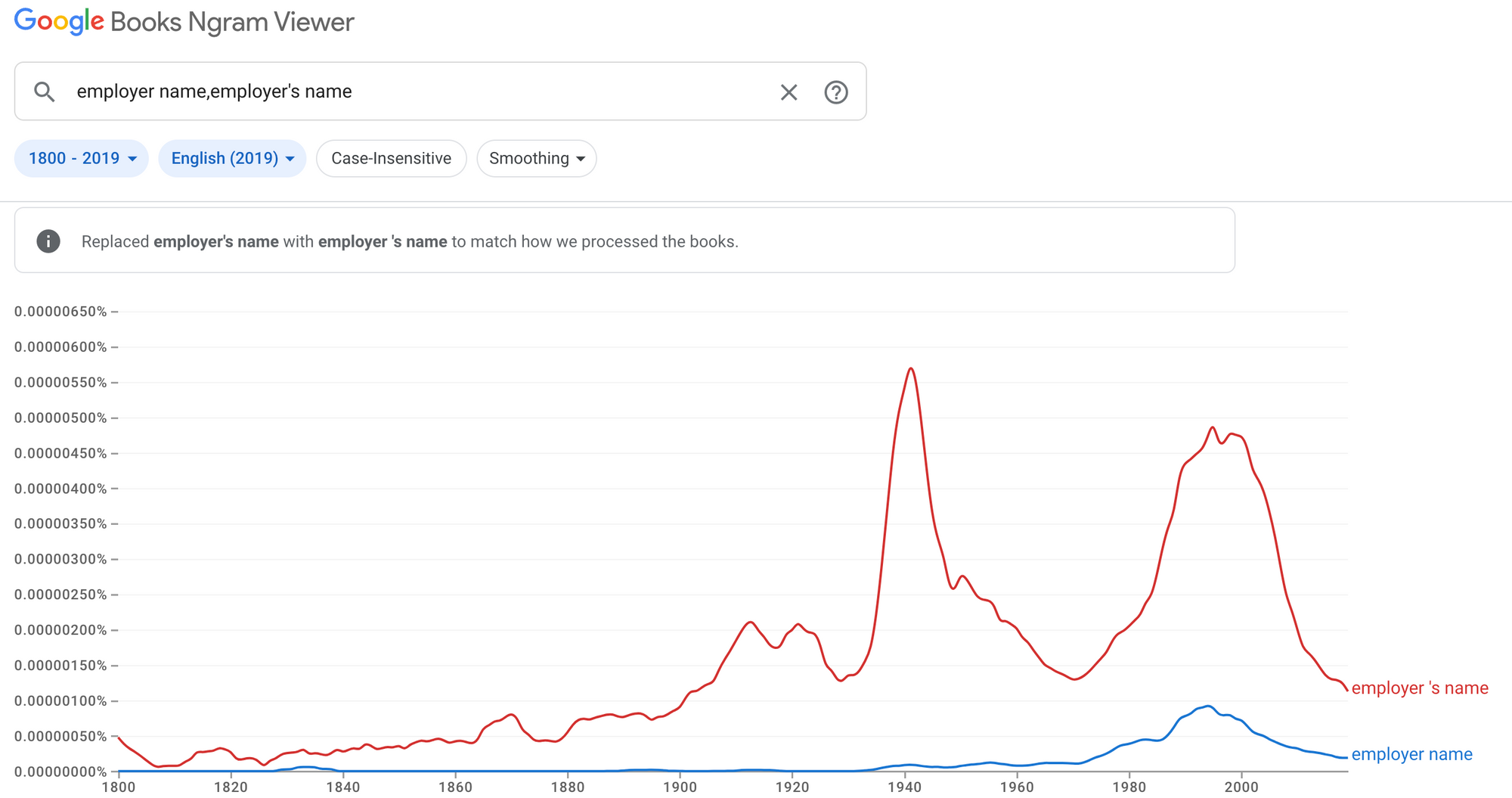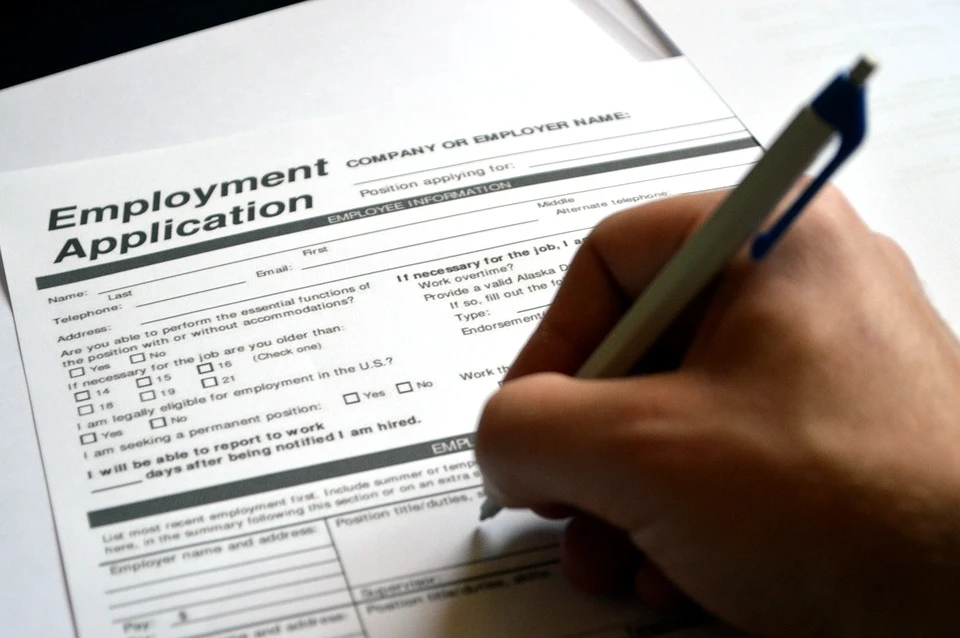When a person or written form asks you for your "employer name" (or "employer's name"), that means the company you are working for.
🧑💼CV vs. Resume
🧑💼How to Write a Good Resume
🧑💼How to Write a Job Application Emails (With Samples)
For example, if you currently work at a company called Company A, and an online application asks you for your employer's name, you would type in "Company A."

When is "employer name" used?
"Employer name" (or "employer's name"), which refers to the name of the company or organization that employs an individual, is used in various contexts, such as job applications, résumés, tax forms, bank applications (for loans, mortgages, credit cards, etc.) and official documentation. It is especially used in job applications where the applicant is asked to provide their employer's name to identify the company or organization they work for. This information is used for administrative, legal, and reference purposes in the employment process.
In some rare instances, "employer name" can also refer to the name of your supervisor or boss. However, unless specified, "employer name" typically means the name of the company that you are working for.

Different ways of saying "employer name"
Below are the different alternatives of saying "employer name":
- Employer's name
- Name of employer
- Name of your employer
- Company name
- Organization name
- Place of employment
- Company or organization name
What if you are currently unemployed or self-employed?
What would you write in a job application asking for your employer's name if you are currently unemployed or self-employed? "Employer name" often refers to your current or most recent company, so if you are between jobs, put your most recent company along with the dates that you have worked for it. If an online job application allows you to input multiple jobs, you can also put any relevant jobs and describe your past work experience and accomplishments for each slot.
If you are a fresh graduate with no work experience yet, you may leave the "employer name" section blank. If you have had an internship, you may put the company that hosted the internship but be sure to specify that it was an internship. In the job application, do not forget to include your highest degree along with your GPA and any other relevant information, such as any certificates or achievements related to the field you are applying for. Because you have yet to have any work experience, this information will help hiring managers determine if you are a good fit for the job.
If you are self-employed, feel free to write "self-employed" under "employer name" and explain what kind of work you do. If you own a registered company, put your business's official name under "employer name" along with your title (e.g. co-founder, founder, owner, etc.).
Why do job applications ask for your current or previous employer?
The hiring manager may use this information to confirm if the information on your resume is accurate. They may also contact your previous employers to gain insight into your work performance, character, and suitability for the new position.
Hiring managers also use this information to check whether you worked in a relevant field to see if you are compatible with the position you are applying. They can also take into consideration the work culture of your previous company to see if you would be a good fit at theirs. For example, startups may favor you if you have experience at other dynamic startups with hustling work cultures, while big corporations may favor someone from a big company background.
The use of the term "employer name" across time

The terms "employer name" and "employer's name" have seen a fluctuation of use throughout the years. "Employer's name" with the possessive "s" seems to be more widely used than "employer name."
Example sentences
- Please fill in your employer's name on the job application.
- It's essential to provide your employer's name when applying for references.
- The contract specifies that the employee must keep their employer's name confidential.
- Your employer's name will be included in the company directory.
- When signing documents, make sure to include your employer's name for authentication.
- The HR department requested the new employee's previous employer's name for tax purposes.
- The form asks for the employer's name, contact information, and job title.
- Your employer's name will be displayed on your work ID badge.
- Ensure that your resume includes your current and previous employer names.
- The applicant was asked to disclose their previous employer's name during the interview.
Want to sound like a native speaker?
Engram’s AI-powered grammar checker makes your English sound like a native speaker’s, suggesting natural English expressions on top of fixing grammar, spelling, punctuation, word order, and vocabulary.

Reference:
https://www.indeed.com/career-advice/resumes-cover-letters/employer-name-on-job-application















